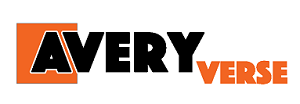Online Learning in 2022 – What Is It and How Does It Work?
As a result of technological progress, several schools now offer online courses to their students. It has never been simpler to further your education through a certificate program, a doctoral program, or even through effective online language learning. Thanks to technological advancements, today’s students can view lectures, participate in class discussions, and socialize with their peers, all while studying online.
Although some may believe higher self-motivation is necessary for online learning, schools understand the importance of educational support and tutor feedback and make a great effort to provide it to their students.
How Exactly Will Online Education Be Conducted?
Many distance learners expect their course materials to be sent to them by electronic mail or even regular mail. Due to its unreliability, most online institutions are shifting away from it.
Materials for the course or module will be available through the school’s digital learning space. The software in question will determine the specifics of the learning platform. Still, it will generally be a centralized online space that students can access from any computer, smartphone, or tablet. The flexibility of online-only resources is a significant selling point for their use.
If you are taking a class online, you can study and turn in homework whenever possible. So, you can schedule your study time around your other responsibilities, such as work and family. This also implies that students who want to keep working while they study will not have a problem in the finest qualities of both worlds.
How Do We Evaluate Online Courses?
Students enrolled in an online degree program or attending a single online course should still expect to be examined at various points throughout their studies.
People who have never pursued formal education in a digital setting may find this procedure daunting. In any case, you should not fret. Since experts run online schools, you can rest assured that your exams will be administered in a way that maximizes your comfort and fairness and that they will help you grow academically.
Individual assignments, group activities, journaling, and tests are the most common forms of online education assessment.
When it Comes to Online Learning, How Do Institutions Ensure That Students Do Not Cheat?
It is a common misconception that students taking their courses online may easily ace their exams by buying their way through or using outside resources. The opposite is true.
The convenience of online education is an illusion. All online institutions should meet or exceed the quality standards set by their counterparts in the physical world. As the capacity for distance education has grown, so have the digital safeguards put in place by online colleges and universities to detect and punish academic dishonesty.
The instructors and online learning institutions make a significant effort to make cheating in online courses difficult. Your online course uses sophisticated plagiarism detection software that electronically scans all submissions, including exams and assignments, for signs of plagiarism. Your instructor may also conduct additional manual checks.




